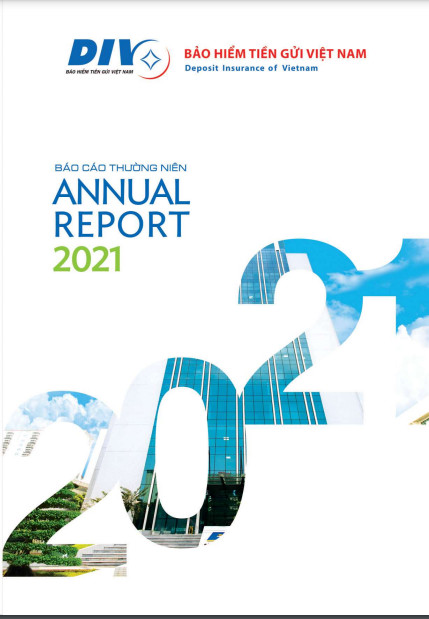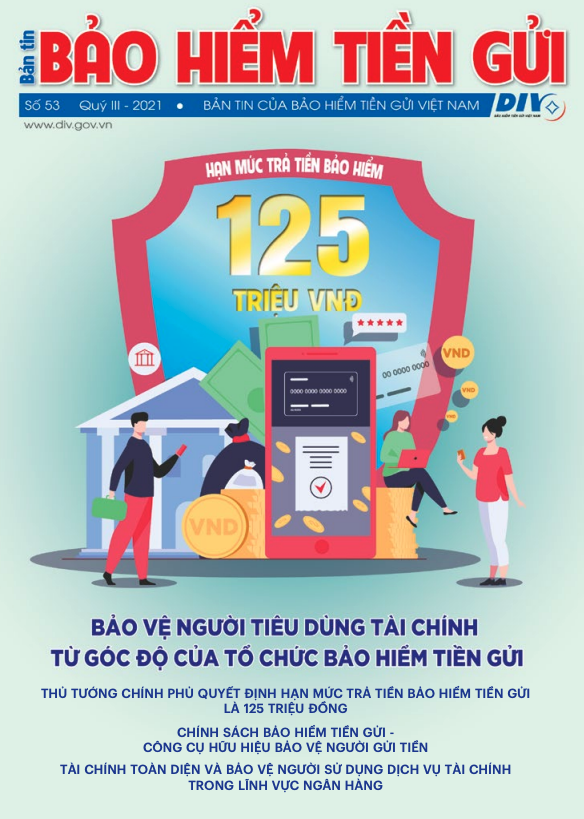Deposit interest rates are about to increase to attract deposits.
From the beginning of August to August 19, 13 commercial banks increased deposit interest rates, including Agribank, Eximbank, HDBank, Sacombank, Saigonbank, TPBank, CB, VIB, Dong A Bank, VPBank, Techcombank, VietBank, and SHB. Sacombank is the only bank that has increased interest rates twice.
Leading the 12-month term deposit interest rate table, PVcomBank listed interest rates up to 9.5%/year. However, to enjoy this high interest rate, customers need to meet the minimum deposit requirement of VND 2,000 billion at the counter, which only applies to products that receive interest at the end of the term. Under normal conditions, PVcomBank is listed the highest 12-month interest rate at 5.1 %/year when customers deposit savings online and receive interest at the end of the term. If customers deposit money at the counter, they will only receive interest at 4.8%/year.
The rate of 6.1%/year is also the highest interest rate on the market today for deposits of 18 or 36 months. It is listed at five banks: NCB and OceanBank (deposit terms from 18-36 months); HDBank (18-month term); Saigonbank and SHB (deposit terms from 36 months).For online savings, CBBank is listed the highest interest rate for a 6-month term at 5.55%/year when customers deposit money online.The increase in deposit interest rates is an inevitable market trend in the context of credit growth three times faster than capital mobilization growth.
According to the report of the State Bank of Vietnam (SBV), as of July 31, interest rates for new and old loans continued to decrease. By the end of June 2024, the average lending interest rate was at 8.3%/year, down 0.96% compared to the end of 2023. The average deposit interest rate was at 3.59%/year, down 1.08%/year compared to the end of 2023. Credit growth of the whole system recovered from the end of March. It gradually increased over the months, higher than the increase in the same period in 2023, reaching 6% by the end of the second quarter of 2024, according to the direction of the Government and the Prime Minister. At the end of July 2024, outstanding credit was nearly 14.33 trillion VND, up 14.99% over the same period in 2023 and up 5.66% over the end of 2023.
According to data from the SBV, in January 2024, citizens’ deposits in the banking system experienced a negative growth. However, this situation gradually improved with the increase in deposit interest rates. In February 2024, citizens’ deposits in the banking system grew by 1.6% over the previous month. Citizens’ deposits increased by more than 39.7 trillion VND in April and reached more than 6.7 trillion VND, continuing to set a new record. In contrast to deposits from economic organizations, the cumulative amount of residential deposits in the first four months of the year increased by more than 183 trillion VND (2.8%), indicating a positive trend in the market.
Updated to July 29, capital mobilization of the entire banking system reached over 14.1 million billion VND (including capital mobilization in VND and foreign currencies), of which capital mobilization in VND nearly 13.2 million billion VND (of which deposits of economic organizations reached nearly 6 million billion VND, deposits of citizens reached nearly 7.2 million billion VND, up 4.82% compared to the end of 2023, up 0.26% compared to the end of last month).
The continuous increase in bank deposit interest rates in the past few months has stimulated the flow of money back into the banking system.
Moreover, the legitimate rights and interests of depositors are always protected by law. In Vietnam, there is only one deposit insurance organization called the Deposit Insurance of Vietnam(DIV) - a state-owned financial organization operating not for profit, implementing public policies on deposit insurance, contributing to maintaining the stability of the credit institution system, ensuring the safe and healthy development of banking activities. Currently, DIV is protecting more than 100 million depositors at nearly 1,300 published institutions. The DIV performs the mission of ensuring the deposits of individual customers when the deposit-receiving institution becomes insolvent or bankrupt, providing a safety net for depositors.
Since the beginning of the year, other investment channels have not really improved. The stock market has had many shocking declines, while another risky asset investment channel, virtual currency, has also plummeted. The real estate and corporate bond markets are still waiting for new policies to come into effect (for example, the 2024 Land Law 2024, Law on Housing 2023, and the 2023 Real Estate Business Law on Real Estate Business, 2023 which will take effect from 1/8), so transactions have not been really active. Moreover, recent incidents related to corporate bonds have also made investors hesitant. In the gold market, since the beginning of the year, the world gold price has increased by about 17%, while the price of SJC gold bars has only increased by 7%. Despite the optimistic outlook for world gold prices, the gold investment channel in Vietnam is increasingly losing steam, mainly due to the recent gold market management policies of the SBV. Although the gap between domestic and world gold prices has significantly decreased, gold investment is increasingly being eliminated from the portfolios of many individual investors and investment funds.
Skill to deposit saving safely and effectively
To ensure their rights, depositors need to grasp the principles when depositing saving at credit institutions.
Customers should go to credit institutions licensed to receive deposits and should deposit money directly at the counter:
Article 2, Circular 48/2018/TT-NHNN, dated January 31, 2018, provisions regarding saving deposits: Credit institutions receiving saving deposits as prescribed in this Circular are credit institutions established and operating under the provisions of the Law on Credit Institutions, including Commercial banks, cooperative banks, microfinance institutions, people's credit funds, and foreign bank branches.
In addition, people can deposit savings at the Vietnam Bank for Social Policies (VBSP). VBSP mobilizes deposits with interest rates equal to those of state-owned commercial banks. Unlike commercial banks, VPSB operates not for profit and is guaranteed by the Government for its ability to pay, so customers can feel secure when depositing money. In addition, to create the most favorable conditions for people, on a fixed date every month, the Social Policy Bank organizes transactions at the ward People's Committee headquarters. People who want to deposit savings can go to the ward People's Committee headquarters where they reside or to the VBSP 's transaction office for service. In fact, to compete and attract customers to deposit large amounts of money, some banks allow VIP customers not to go to the counter or branch to make transactions but to authorize others or authorize bank staff who are branch leaders or heads of the bank's transaction offices to perform deposit and withdrawal transactions on their behalf...
This is extremely dangerous because dishonest bank employees may hand over fake savings books or then not return the money to the treasure, not enter it into the system, or not give all the necessary documents for the customer to sign. After signing the transaction documents, the bank staff may swap the documents, leading to the customer losing money unjustly.
Therefore, going directly to the bank to open a savings book is the safest way. In addition, when transacting at the counter, customers will be recorded by the camera and this is important evidence when an incident occurs.
Do not sign documents in advance: Customers are not allowed to sign blank pieces of paper when making deposits or withdrawals. With blank forms signed by customers, bank employees can fill in information to withdraw customers' money in different ways.
Do not deposit money first, receive the book later: Many customers are used to work with a certain bank employee. They are so easy-going that they "owed the book" or "owed the documents." Unfortunately, that employee quits or absconds and takes the customer's money with him. Then, there is no proof that it is their money, and the depositor will be at a great disadvantage.
Be careful when checking the savings book: After receiving the savings book or deposit contract, customers need to carefully check the information: bank name, currency type, amount, deposit term, deposit date , due date, interest rate; interest payment method, full name and address of the savings deposit owner, of the savings deposit co-owner; citizen identification number or passport; card number, seal, signature of the unit head (or authorized person)... Because customers may be at risk when bank employees accidentally enter the wrong amount of money deposit or intentionally appropriate money if the customer does not detect it due to not checking the savings book or the savings book, the deposit contract does not have complete information.
Do not change the signature: Do not sign each document differently, which can lead to difficulties later in withdrawing and receiving money; sometimes, it will take a lot of time to prove that the savings book is yours. Therefore, maintaining a signature throughout the transaction process with the bank is necessary to help customers conveniently and quickly deposit, withdraw, and transfer money from their accounts.
Keep the savings book carefully: When losing the savings book, you must notify the bank immediately. Within 24 hours of notification by phone, the customer must go directly to the bank to make a lost savings book report. Otherwise, the fraudster can forge the signature and identification documents, and the customer will suffer the loss of their deposit. Do not lend your savings book to anyone because they can forge your signature and ID card and collude with bank staff to withdraw money from your account.
Online savings must comply with security principles. Currently, in addition to opening a savings book directly at the bank, people can make online savings. This form of savings is chosen by many people because of the quick procedures and attractive interest rates. People can quickly make deposits, final payments, renewals, check deposit information, and deposit interest rates on the banking app on their phones.
However, customers also need to be extremely careful when making online transactions. Do not click on strange links, download apps of unknown origin, or follow the instructions of subjects claimed to be bank employees, network operators, tax authorities, police officers, etc., calling to instruct on how to install the application.
Communication department

























